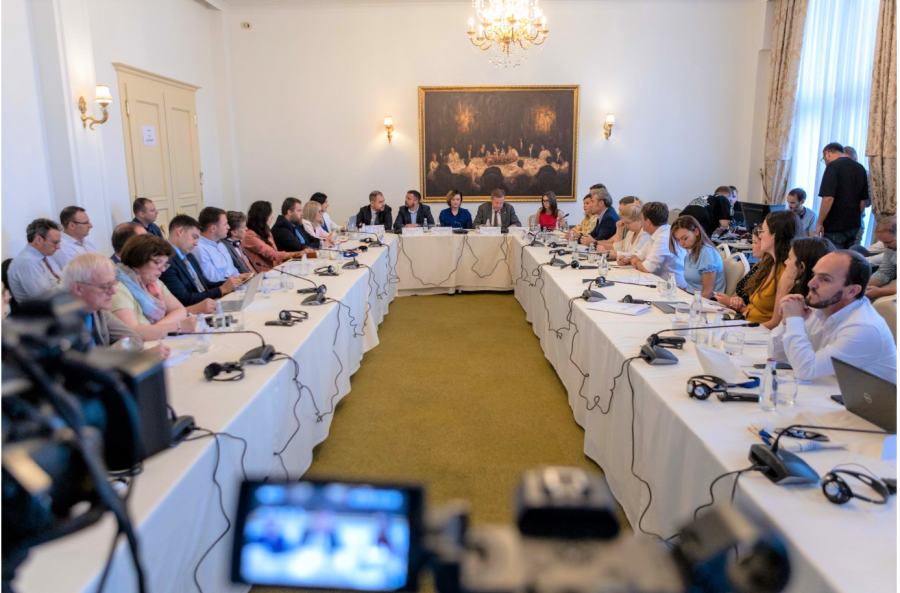20/07/2023

Prishtina, July 20, 2023: In preparation for the upcoming 2023 Tirana Civil Society and Think Tank Forum (CSF) of the Berlin Process Summit to be held in Tirana, Albania, regional experts, policymakers, and stakeholders convened today in Prishtina, Kosovo, to address the challenges and opportunities for bolstering regional security cooperation in the Western Balkans.
The Kosovar Centre for Security Studies (KCSS) has been invited by the Open Society Foundations - Western Balkans (OSF-WB), ELIAMEP, and CDI to lead the consultation process and develop a policy paper with actionable recommendations for the Thematic Working Group on Security and Geopolitics, with a focus on regional security cooperation in the Western Balkans.
To this end, KCSS successfully organized three online consultation meetings, convening a diverse group of experts from the region. The invaluable contributions of experts have been instrumental in framing the challenges and formulating recommendations to foster enhanced regional security cooperation in the Western Balkans.
Continuing this effort, KCSS hosted a roundtable discussion in Prishtina, Kosovo, today, where regional experts delved into the pressing issues of regional security cooperation. The Head of the EU Office in Kosovo, Ambassador Tomáš Szunyog, emphasized the significance of countering disinformation, promoting the rule of law, and ensuring regional ownership of security initiatives. Moreover, Ambassador Szunyog highlighted the vital role civil society plays in facilitating and enhancing regional cooperation in the Western Balkans. Ms. Arbana Pasholli, a member of the Parliament of North Macedonia, stressed the importance of cooperation and integration to bring the region closer to the European Union (EU). Ms. Lura Limani, the executive director of the Kosovo Foundation for Open Society (KFOS), underscored that regional integration is essential for development and democracy, emphasizing the need for civil society participation in the Berlin Process and utilizing the region's capacities to strengthen cooperation.
Ramadan Ilazi and Adelina Hasani, researchers at KCSS, presented findings from the online consultations, highlighting that Russia's invasion of Ukraine has created a new momentum for the Western Balkans' European integration process. However, countries in the region are yet to fully embrace this opportunity. They also emphasized that the Western Balkans face threats from foreign malign influence, driven by state and non-state actors, often exploiting organized corruption, weak rule of law, and a lack of commitment to democratic norms. Notably, the situation in Kosovo and Serbia, as well as Bosnia and Herzegovina, poses the most significant challenge to peace and security in the region. Addressing the normalization of relations between Kosovo and Serbia is critical for regional stability.
Ramadan Ilazi highlighted that while political will remains pivotal for regional security cooperation, equal attention must be given to operational efforts to achieve tangible results. Recognizing the transnational nature of threats, he emphasized the importance of coordinated responses and urged Western Balkan countries to align their policies with the EU's Regulation 2019/452, the Foreign Direct Investment (FDI) Regulation, while rationalizing regional security initiatives for improved performance and cooperation.
Adelina Hasani pointed out that malign foreign influence often relies on disinformation campaigns and propaganda to distort public discourse and manipulate perceptions. In this context, she stressed the need for collaboration between countries to effectively defend against cybersecurity threats.
The insights gained from the roundtable discussions will contribute to a comprehensive policy paper with tangible recommendations on advancing regional security cooperation. This paper will be presented at the forthcoming summit of the Berlin Process in Tirana later this year.